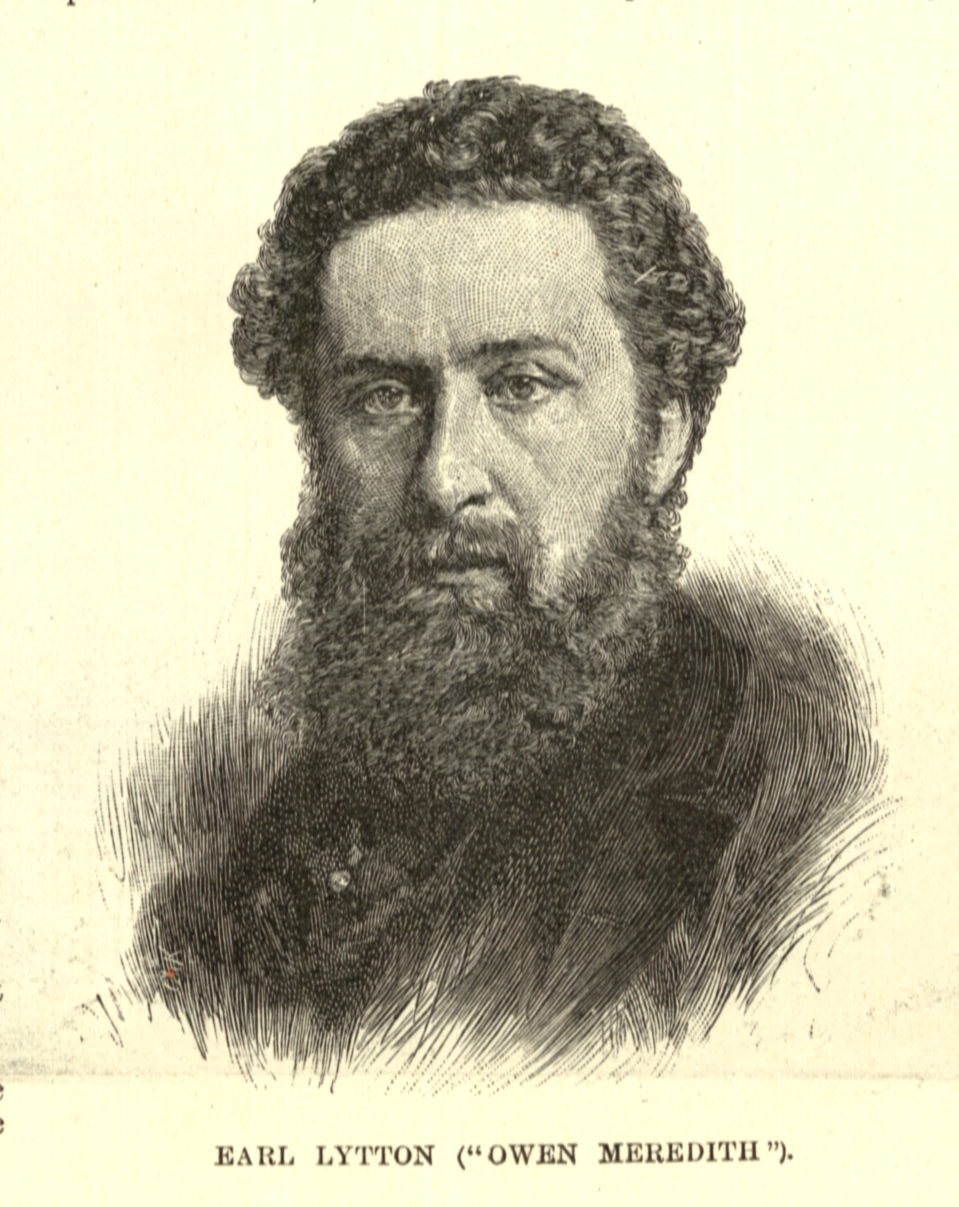Obituary of Lord Lytton (1831-1891)
in
Harper’s Weekly (New York) 35 (December 5, 1891), p967.
[] Notes that a paragraph is not indicated in the original but has been inserted here to ease reading.
 OWEN MEREDITH.
OWEN MEREDITH.
The author of "Lucille" is dead. In America, at least, the nobleman and ambassador who concealed his rank under the nom de plume of Owen Meredith, and wrote those love-poems which twenty years or so ago were readily [sic: known to?] all the young men and maidens, was known much more as a poet than in any other capacity. And although the Earl of Lytton rose to a higher rank in the peerage than any of his race had done before him, and also filled greater public posts than had been given to any of them, he was better pleased to be thought of as a man of letters than to receive consideration for the work which was his serious business in life.
[] The first Earl of Lytton was the son of Lord Bulwer-Lytton, the celebrated novelist, who was made a Baronet in 1838 and a Baron in 1800. Every reader of Thackeray will remember the merriment which Bulwer's first social promotion excited. The son, however, went one step higher up the ladder, and was made an Earl after he had served as Viceroy in India, and had got into no end of political difficulties there.
[] The Earl of Lytton entered the diplomatic service when he was nineteen years old, and came to Washington as an aid to his uncle, Sir Henry Bulwer, then English Minister to the United States. This uncle, who was a man of ability, will be remembered as the person who negotiated on the part of Great Britain the Clayton-Bulwer treaty, which is always alluded to when any International question arises affecting American and English interests and obligations in Central America. For more than forty years Lord Lytton has continued in the diplomatic service, and has served or represented his country in nearly all the great capitals of Europe, besides being the Governor-General of India. When he died the other day of heart-failure he was English Minister in Paris. This position he has held since the death of Lord Lyons several years ago, and it is considered, to be most desirable post in that branch of the English service in which his life was spent.
[] In the unfortunate quarrel between the elder Bulwer and his wife, the son who has just died took sides with his mother, but he did not quarrel with his father, with whom he always retained friendly relations, and to whom, when he himself came before the world as an author, he dedicated his best-known work, "Lucille." [sic] The Earl of Lytton, after the death of his father and mother, edited a volume of letters which spread before the world many of the details of the sad differences which had separated his parents. This was a singular lack of tact and good taste, and can only be accounted for on the ground that the son thought his father so wonderfully great that the world had a right to know all about him. But he could not have been a very tactful man at best, for the only time he was called upon to exercise his own discretion as Governor-General of India he got things into a sad mess, and the government needed to send out as his successor the ablest man in the diplomatic service, Lord Dufferin.
Personally the Earl of Lytton was a most charming man. He was accomplished, amiable, and witty, and as a society man had few if any equals in any of the European capitals. His successor in the earldom is a lad of sixteen, and has heretofore been known as Lord Knebworth.
Last revised: 26 August 2010